The Burmese Harp: The Masters of Cinema Series
Kon Ichikawa took a while to be recognised as one of the great Japanese directors and it was probably in the period in which he made Kokoro and The Burmese Harp that he came to widespread critical and mainstream attention. If you mention Burma and World War II to the average film watcher then they will probably think of something like Bridge on the River Kwai or another film told from the Allied point of view. But, as the saying goes, 'it takes 2 to tango' and, when the war in the Pacific ended, there were a huge number of Japanese prisoners on a variety of different islands that tended to be brought back to one of the big Island such as Japan or Burma.
The Burmese Harp is told largely in flashback and begins the end of the Second World War when a platoon of Japanese soldiers on patrol in Burma hears some British soldiers coming and, in order to keep them under the impression that they are not ready for combat, begin singing along to PFC Mizushima, who has become something of an expert on the Burmese harp. Once they are ready to combat and have moved the ammunition dump away from their base, they discover that the British Army is there as victors in the long campaign and that Japan has surrendered. The platoon is asked to volunteer one of their number to go out and persuade other companies holed up in the mountainous areas to surrender. Mizushima is given the job and is nearly shot by his own countrymen in the Triangle Mountains trying to get up to a cave in which they are fairly secure with heavy machine guns pointing out at would-be attackers.
Accused of being a traitor and a coward for surrendering, Mizushima is unsuccessful in persuading these men to lay down their arms and turn themselves over to the Allied forces so he attaches a white flag to his harp and tries to surrender on their behalf but only succeeds in instigating a minor skirmish which escalates into a full-blown attack by the British who are waiting below and everyone, except Mizushima, is killed. He survives by basically cowering in a corner and then jumps out of the cab, rolling down the mountain to get out of harm's way. Found and brought back to health by a Buddhist monk, Mizushima tries to return to his company by stealing the monk's robe and running across country but, when he comes across a beach which is covered by scores of dead Japanese soldiers, he has second thoughts and thinks that life maybe better off as a monk than a soldier.
Meanwhile, news has reached his colleagues that the was a huge loss of life in the assault on the Triangle Mountains but there was one survivor, possibly Mizushima. Unwilling to give up hope, they persuade a local woman who trades with the Japanese POWs to keep an ear out for the identity of the survivor and, when they are crossing the bridge one day and pass a monk who bears a startling resemblance to their missing colleague, they believe they have found him. The only problem is that the monk doesn't appear to speak Japanese and doesn't respond to any attempts to communicate with him and doesn't react when they called him by the name 'Mizushima'.
Based on a book written 10 years earlier and adapted for the screen by Kon Ichikawa's wife, The Burmese Harp is one of the very few Japanese films that seeks to portray what happened at the end of the war and the difficulty that some men had in accepting that the country had surrendered and didn't want to go home where they may be seen as cowards and as men who did not go out fighting, dying for their country.
Prior to watching this, my only exposure to Kon Ichikawa's work was Kokoro and Alone Across the Pacific which I watched in a double bill quite some time ago. I thought that they were magnificent films and that Ichikawa was a supremely gifted director based on those two and this has done absolutely nothing to change my mind. It is an absolutely gripping film with wonderful performances by the entire cast which had to be rather carefully assembled due to the shortage of men around that age following the huge loss of life in World War II. I was amazed at just how engaging as the film was and how emotional the ending is as, in less than two hours, Ichikawa has really draw you into the plight of the captured soldiers and particularly Mizushima, who may be dead or maybe pretending to be a monk so he doesn't have to return home for reasons only known to himself.
The Disc
Extra Features
Releases from the Masters of Cinema series can be split into two camps: those with plenty of extra features and those without. Like the other two Ichikawa films, this doesn't have a great deal on the disc has, aside from the trailer, there is only an introduction by Japanese cinema expert Tony Rayns. In this 18 minute piece, Rayns talks at length about Ichikawa's career, how the Burmese harp came to be made and what an important film it is for both Japanese culture and Ichikawa's career.
As usual for one of these releases, this comes with a hefty booklet (in this case 40 pages long) which I haven't seen in the flesh but the PDF is hugely informative read.
The Picture
Despite the best efforts of those who restore films, I'm always a bit wary about how well Japanese films from the 1940s, '50s and '60s will look as Japanese studios were notoriously skimpy with the best negatives and the way in which they stored the film stock. I was therefore not particularly surprised that this looked a little 'worn' and that the contrast levels weren't quite as deep as you would find in a Hollywood film from the same year.
However, the picture is generally rock solid and does a tremendous job of showcasing Ichikawa's direction and the cinematography by Minoru Yokoyama. As Tony Rayns explains in the introduction, most of the film was shot in Japan rather than Burma and only a few scenes involving Mizushima were shot on Burma in front of recognisable landmarks, temples and statues and interwoven into the Japanese footage to give the impression that the entire film was shot on location. It works extremely well and looks even more authentic in black and white, which was less of an aesthetic decision than a practical one as Ichikawa didn't want to lug one of the huge three strip Technicolor cameras around Burma and then wonder what to do should they break down.
The Sound
An extremely good LPCM 2.0 mono track which does a tremendous job with the dialogue and singing which really swells through the speakers and almost has you humming along! In the opening sequence when there is some combat footage with explosions and machine gun fire, the soundtrack also handles this extremely well with a real crispness to the sounds of the bullets firing and rock fragments landing.
The film is predominantly in Japanese but there are some sequences and parts of scenes that are in English or Burmese and, when the language changes from Japanese, there are Japanese subtitles at the side which you can quite easily ignore and they don't distract from the extremely well written and clear (optional) English subtitles at the bottom of the screen.
Final Thoughts
The Burmese Harp is a terrific film that is emotionally engaging and a fascinating insight into the way that the Japanese film industry handled the surrender at the end of World War II. Although there aren't any mentions of the atrocities committed by the Japanese army in the conflict, this isn't really a film designed for catharsis and some form of reconciliation with what the Armed Forces did between 1941 and 1945. It is an adaptation of a bestselling novel and, as a piece of fiction, works extremely well with great characters and an ending that does carry on emotional punch.
There may not be a great deal of extra features but this is still a disc that anyone interested in Kon Ichikawa's career and Japanese cinema in general should seriously consider buying.
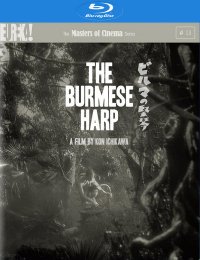
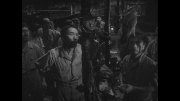
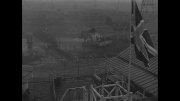
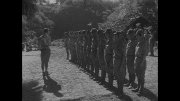
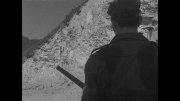
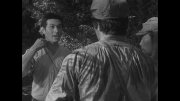
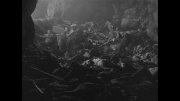
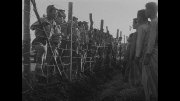
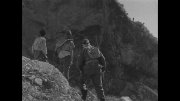
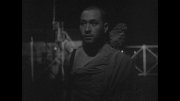
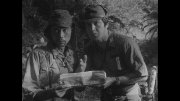
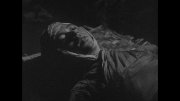
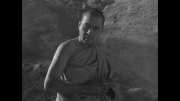
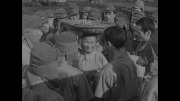





































Your Opinions and Comments
Be the first to post a comment!